Retailers seems undaunted by headlines about the sugar content of energy drinks and their sales figures look full of vitality.
The energy drinks market has certainly felt the pressure this year after negative press concerning the amount of sugar the drinks contain raised consumer concerns. Charities such as Action on Sugar have been calling for energy drinks sales to be banned to under-16s after research showed that 78% of energy drinks on the market contain up to 20 teaspoons of sugar.
While the market is still making steady progress - the latest Mintel report shows that in 2014 the market grew by 2.6% in value terms on the previous year - it is a far cry from its 2011 heyday where the market saw a phenomonal year-on-year growth rate of 15.7%.
Mintel believes the slower growth seen of late is related to the “high-profile media coverage on sugar and pending valuation of caffeine’s safety from European Food Safety Authority”.
Nevertheless, many convenience stores are still seeing strong sales. According to HIM Research & Consulting, 4% of convenience baskets contain an energy drink, up 2% from 2010.
The headlines haven’t troubled Arjan Mehr’s customers at his Londis store in Bracknell, Berkshire. He says: “People don’t think twice about their health when they grab an energy drink from the chiller. It’s a pick-me-up, a hit of caffeine just like a cup of tea or coffee.”
Mark Canniford’s Spar in Western-super-Mare, Somerset, has always had impressive sports and energy drinks sales. “My shop is just down the road from a sports college so my main audience is quite young,” he says. “They regularly come in looking for something to keep them going throughout the day, and an energy/sports drink is the perfect solution.”
Big pack potential
The main market for energy drinks is undoubtedly the on-the-go consumer, but some retailers are finding there’s demand for larger take-home bottles and multipacks - especially when they are on promotion.
Mark Canniford’s Spar customers like cold energy drinks they can consume straight away, but he adds: “We stock multipacks only when they are on offer from Lucozade, four bottles for £2. These sell really well.”
Sandeep Bains of Simply Fresh in Kent similarly experiences good sales from stocking multipacks and large bottles of energy drinks when they are on promotion.
At least half of Mark’s soft drinks chiller is dedicated to energy and sports variants, including Lucozade, No Fear, Monster, Rockstar, Red Bull and Spar’s own brand.
“A lot of customers tend to buy two or three energy/sports drinks at a time, so I generally find they prefer to buy the cheaper brands, especially younger customers. They would rather buy three for £1.35 than one for £1.30. More expensive drinks and brands such as Lucozade and Red Bull are more commonly bought by older people,” says Mark.
While Mark has plenty of space for lots of different brands, Sandeep Bains of Simply Fresh, Faversham in Kent, has only a 1.5m run of chillers to display his drinks in. This means he has to be very selective about which products he chooses to stock. “A few years ago it was just Red Bull sitting in my chiller, but with more and more brands coming into the market I have had to find the best ones to suit my customers.
“Alongside Red Bull now sits Monster, Boost, Relentless and Lucozade. My best-seller, though, is Relentless, due to its £1 pricemark which is proving very appealing to the 18- to 25-year-olds,” adds Sandeep.
But following closely behind Relentless is Lucozade, the one brand Sandeep makes sure he has plenty of space for. It may not be his best-seller, but it is in high demand by his customers as there is a sports park just over the road from his shop. “I stock five variants of Lucozade: Original, Orange, Mango & Passionfruit, Grafruitti and Caribbean Crush. Unlike other sports and energy drinks which sell better when they are pricemarked, I don’t see much difference between sales of 95p pricemarked Lucozade and £1.30 bottles. Customers buy depending on the flavour they like and the benefits of the drink,” adds Sandeep.
Energy drinks are a top on-the-go purchase in Clive Sheppard’s eight forecourts and Spar store in the West Country. “People come in looking for something to give them a boost on long journeys. We stock a wide range of brands, but Monster is our best-seller; I think this is due to the promotions and pricemarked packs which the brand offers, or heightened by the Spar promotion of four cans for £3.”
Clive will be working with Monster over the summer on an in-store promotion offering consumers the chance to win a surf board.
“Surfing is a very popular sport in Cornwall and I’m hoping that the in-store theatre Monster will be supplying, including the actual surf board, will really catch our customers’ attention and benefit both myself and the brand.”
While mainstream energy drinks continue to perform in convenience stores, there is undoubtedly demand for sugar-free variants. Mintel research shows that nearly one in three sports drink users is put off drinking some sports drinks due to stories in the media.
Big brands have noticed that high sugar content can act as a barrier to sales for certain consumers and have responded accordingly, offering lower-calorie variants.
Ed Whitehead, strategy and planning manager at Red Bull UK, says: “With growing government pressure on retailers to promote healthy alternatives, an increased number of reduced or zero calorie variants have recently entered the energy category. Campaigns such as Change4Life have led to a change in perception from consumers, with 71% now saying that it is important to do something about their health.
“In 2014 diet drinks was a key growth driver in energy and the launch of Red Bull Zero was central to that.”
AG Barr has also responded: “Although energy is an important component for the majority of consumers in the market, we do see a small but growing number of consumers who are looking for a lower-calorie or even sugar-free option,” says head of marketing Adrian Troy.
The brand launched Rockstar Pure Zero in 2014, shortly followed by Rockstar Energy Waters. “This range contains significantly lower calories per 100ml than Rockstar Original, but is also in a smaller serving size of 355ml, therefore delivering less calories per serving,” adds Troy.
Boost Energy Drinks has an extensive range, driven by its desire to offer consumers “taste, value and flavours,” says managing director Simon Gray.
Within Boost’s large portfolio is Sugar Free Pink Lemonade, a drink Boost has invested “considerable time and money developing,” explains Gray.
“This is because sugar-free sales are growing at a phenomenal rate following the move within a number of consumer groups to eat and drink less sugar.”
Clive stocks Red Bull Sugar Free and Monster Zero, and claims that both drinks take a decent share of sales. Arjan, Sandeep and Mark also stock low-calorie alternatives, including Red Bull Sugar Free. “The demand is there and it’s good to give customers an option even if the sales don’t meet those original variants,” adds Sandeep.
Only natural
There is also growing interest in drinks that market themselves as all natural, with energising qualities. Some 73% of consumers say they are interested in energy drinks made with all-natural ingredients, Mintel reports, and a number of brands offering all-natural energising drinks are hoping to capitalise.
New to the UK convenience market is Venga drinks, made from natural fruit flavours and tea extracts, and sweetened with Stevia. They are advertised as ‘lifestyle’ drinks, aimed at consumers who want “natural, low-calorie refreshment, with the added bonus of functionality to support body function,” says Venga Drinks brand development director Richard Perkins.
Perkins says: “Consumers have become savvier about the functionality of the drinks today. They are aware of the negative impact of too much sugar, and also the fact that ‘stimulation drinks’ aren’t healthy functional drinks.”
Another brand hoping to appeal to consumers who want a natural energy boost is iPro Sport, an isotonic sports drink containing ‘100% natural ingredients’.
It is made from natural spring water and contains a combination of complex carbohydrates, vitamins and minerals. “The demand for low-sugar drinks is showing no sign of slowing, and consumers are becoming equally concerned about the use of artificial sweeteners,” says iPro Sport marketing director Lisa Marraffa.
“The result of these trends has been an increase in the use of natural sweeteners in soft drinks such as Stevia, which is 250-300 times sweeter than sugar and contains zero calories. iPro Sport has been using Stevia since it launched in 2013.”
So while sales of sports and energy drinks may not be growing at the break-neck speed of a few years ago, it seems there is plenty of stamina in this market and retailers who stock a strong range of best-sellers, along with some sugar-free variants, look set to reap the benefits.
Age restrictions
Pressure grows to ban sales of energy drinks to under-16s
While there may be no legislation preventing retailers from selling energy drinks to those under 16, lobby groups are pushing hard on the issue.
Charity Action on Sugar has called for such a ban. Dr Alison Tedstone, chief nutritionist at Public Health England, says: “Teenagers are consuming 50% more sugar than the maximum recommended amount and the biggest contribution comes from sugary drinks.”
Many retailers already have voluntary policies in place, and take a common sense view when selling the drinks. Sandeep Bains of Simply Fresh, Faversham, Kent, says: “I stop anyone under 12 from buying energy drinks; kids just don’t need them. If the government were to implement age restrictions I would certainly be behind it.”
As well as concerns over youngsters consuming the drinks, Sandeep worries about the amount that adults consume. “Most people buy one at a time, but I have a few regulars who buy three or four at a time, all to be consumed in the same day.” But he adds: “I’d be missing out on a huge market if I capped the amount my customers can purchase at once.”
Mark Canniford of Spar, Weston-super-Mare, Somerset, agrees that energy drinks shouldn’t be sold to children, but has concerns about the practicalities of policing a ban. “I don’t believe children under the age of 16 should be able to purchase energy drinks. But if a ban was implemented, how would we regulate it? Children under 17 don’t generally carry ID so how would we be sure of their age?
“Instead of raising the tax on sugar the government should be working to educate people better.”
Knowing your audience
There has been a strong growth in the number of 24-35 year-olds consuming energy drinks, according to Mintel research. But 15- to 24-year-olds remain the core users in the category, looking for the cheaper options such as own brands, Boost Energy and Big Dog.
Mark Canniford’s best-selling energy drink is Spar’s own label Blue Bear, a drink commonly bought by 15- to 24-year-olds. He adds: “It’s cheap and tastes very similar to Red Bull. It does so well we even stock a low-calorie option.”
Sandeep Bain’s lower-priced option at his Simply Fresh store is Boost, which comes in a variety of pricemarks from 49p, including sugar-free and original.
The 24- to 35-year-olds are more likely to go for brands such as Lucozade and Red Bull, meaning retailers can’t afford to ignore these lines.
Mintel predictions show this age group’s consumption is in growth, too, while it expects the number of 15- to 24-year-olds consuming energy drinks to decrease.



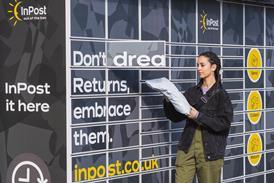
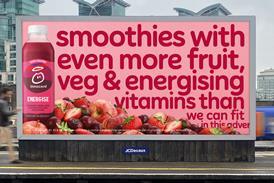
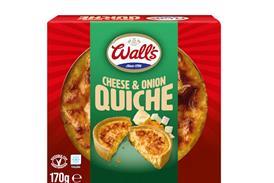
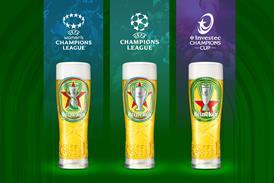









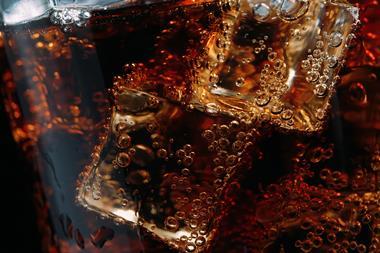
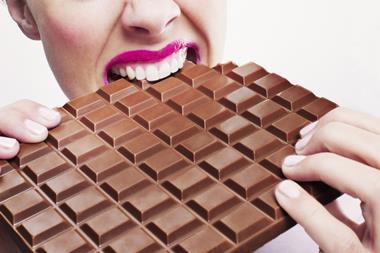
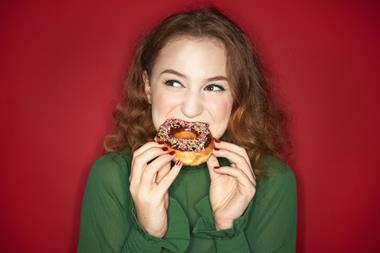
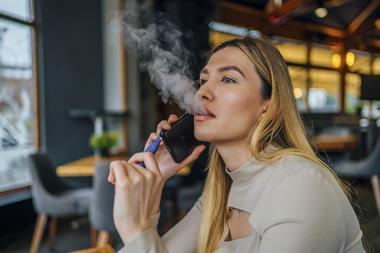
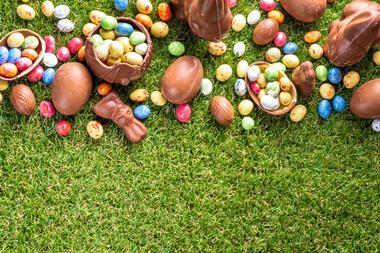
No comments yet